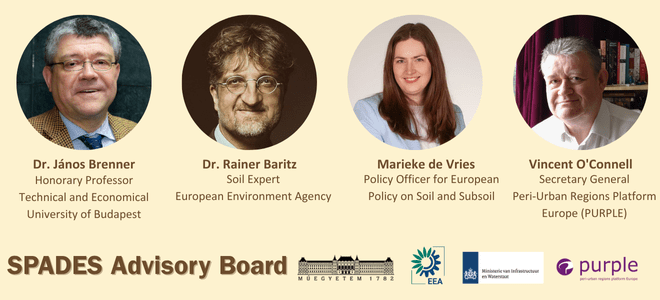About SPADES
Soils underpin ecosystems and human well-being, providing essential services such as carbon sequestration, water filtration and support for biodiversity. However, these vital systems are in crisis due to human activities and planning practices that fail to prioritise soil health. Recognising the urgent need for change, Spatial Planning and Design with Soil (SPADES) strives to promote soil-inclusive planning strategies that combat soil degradation and enhance ecosystem resilience.
SPADES brings together 17 pilot sites in 10 EU Member States, covering different land use contexts such as urban, peri-urban and rural areas. By fostering collaboration between researchers, policy makers and local practitioners, SPADES focuses on the development of practical tools for soil management in spatial planning. With its innovative, integrative approach, SPADES bridges gaps between soil science and spatial planning, ensuring that strategies are scalable and impactful.
We envision a Europe where planning and soil management work in harmony to promote resilient ecosystems, sustainable urbanisation and a higher quality of life, and we pursue this by integrating soil health into spatial planning through innovative tools, knowledge sharing and capacity building to ensure a sustainable future for all.
SPADES is a Mission Soil project, funded by the European Union (Grant Agreement No. 101146122). Views and opinions expressed are, however, those of the author(s) only and do not necessarily reflect those of the European Union or the European Research Executive Agency (REA). Neither the European Union nor REA can be held responsible for them.

